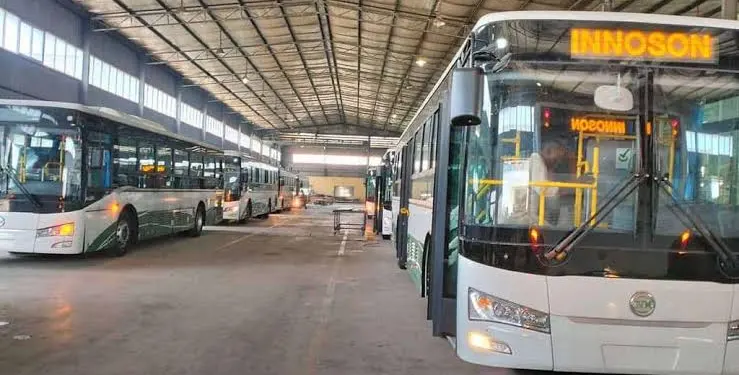In a world of shifting paradigms, where innovation and sustainability intertwine, Nigeria finds itself at the forefront of a remarkable transformation. The buzz around Compressed Natural Gas (CNG) conversion has erupted like wildfire, captivating the media and capturing imaginations. Step by step, the nation is charting a path toward a greener, more efficient future.
Picture this: sleek vehicles rolling out of factories, their engines humming not just with power, but with promise. Innoson Motors, a prominent player in the automotive industry, has unveiled an array of vehicles proudly embracing CNG technology. Meanwhile, Asiko Energies has been quietly but resolutely retrofitting cars with CNG systems since 2018. And it doesn’t stop there. The corridors of power have echoed with this transformation, heralded by the appointment of a dedicated Minister of State for Petroleum Resources (Gas), Ekperikpe Ekpo.

This wave of change hasn’t merely stayed within the confines of newsprint or digital screens. It has hit the streets—specifically, the Obafemi Awolowo University campus—where a comprehensive CNG conversion training course unfurled over a month. The campus served as a crucible for a new generation of engineers, mechanics, and visionaries who saw beyond the present and into a future powered by ingenuity.
Compressed Natural Gas, a compressed form of methane, has emerged as the phoenix rising from the ashes of subsidy removals and petroleum price hikes. With its volume shrunk to a fraction of its atmospheric pressure state, CNG has the potential to revolutionize energy consumption. The benefits are vast: opex costs slashed by 40-80%, a breath of fresh air for the environment due to lower emissions, and an affordable alternative fuel for Nigerian motorists eager to supplement their petrol intake.
The ripple effect isn’t confined to fuel tanks; it extends to the very heart of the economy. Nigeria LNG Limited revealed a staggering $51 billion worth of investment opportunities flourishing in the gas sector. PwC Nigeria enters the fray with an ambitious prediction: tapping into Nigeria’s gas reserves could inject a staggering $18.3 billion annually into the domestic economy, with an additional $10.5 billion through direct economic value addition. This shift isn’t just about fuel; it’s about fortifying the nation’s economic landscape.
As the gears of change grind forward, questions arise.
- Will telecommunication giants pivot to CNG, trimming their operating expenses and contributing to a greener future?
- Can the infrastructure gap be bridged seamlessly, allowing for the effortless adoption of this transformative technology?
These queries stand as signposts, pointing the way to conversations that beckon us all; Nigerians, innovators, dreamers, to ponder the possibilities and embark on a journey where change is not just embraced, but celebrated.


